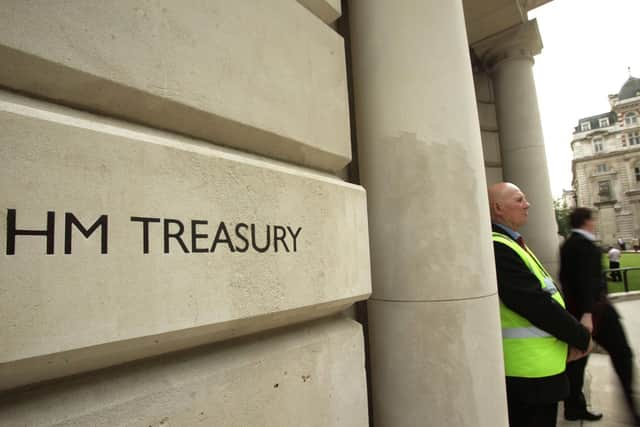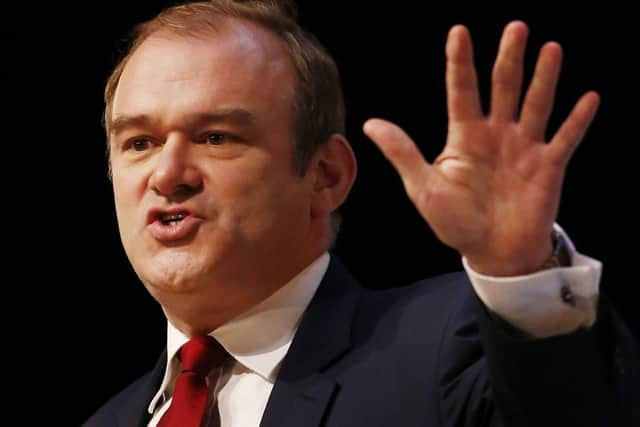'Happy to line up the beers' - how Treasury officials are accused of interfering and influencing controversial Loan Charge review
The Loan Charge APPG, one of the largest All-Party made up of 223 MPs and peers, has published a damning report based on the evidence revealed by Freedom of Information requests that shows that the Morse Review into the Loan Charge, presented as ‘independent’ by the Government, in fact was subject to direct interference by HMRC and the Treasury as well as an inappropriately close relationship between the review team, made up of HMRC and Treasury staff and the two Governmental bodies whose policy the Morse Review was scrutinising.
The Loan Charge, which has presented thousands of small business owners with large retrospective tax bills, has led to hundreds of bankruptcies and has been linked to several suicides from business owners unable to pay the exorbitant bills.
Advertisement
Hide AdAdvertisement
Hide AdEvidence from 376 pages of internal emails and 670 pages of the attachments reveal that HMRC and the Treasury sought to influence the review from before the start of the review until the date that the final report was issued.


The APPG claims the secretariat team had an improperly close working relationship with HMRC and Treasury staff and state there was clear cooperation and collaboration between the Treasury/HMRC and the Review over dealing with the press. In at least one case, lines were provided for the review team/Sir Amyas to use.
The review secretariat is also said to have discussed responses to press approaches with the Chancellor’s press secretary. They also received and used suggestions from the Treasury as to how to respond to the press.
In one exchange, the Review Team member of staff who is a senior Treasury official agrees to buy beers for the Chancellor’s press secretary.
Advertisement
Hide AdAdvertisement
Hide AdWhen offering to help deal with incoming press enquiries directed at the review, about the report, the Chancellor’s own press secretary was asked to find someone to help with this and tells the Loan Charge Review “Cool. Yes we can help. You owe us beers”.


The reply from the supposedly independent Review Secretariat is “Great really appreciate it. And happy to line up the beers”.
The Morse Review has been presented by the Government as independent. It was titled as the “Independent Loan Charge Review” and has been used recently by the Government to justify making no further changes to the Loan Charge beyond those which the review recommended.
However, internal documentation revealed in a two Freedom of Information (FOI) requests appears to expose a clear attempt by HMRC and the Treasury, including senior HMRC management, to direct the review from the outset.
Advertisement
Hide AdAdvertisement
Hide AdThe APPG says the Treasury sought to influence the choice of ‘independent experts’ used to advise the review and HMRC sought to change the report before publication. It had already been exposed that one of the experts appointed later admitted that she did not have any detailed understanding about self-employed schemes and therefore they were unable to comment on those schemes; an extraordinary admission for someone whose advice was being relied on. The Treasury queried whether any expert who had appeared before a Select Committee should be appointed as “it means they are slightly compromised”.


The Loan Charge APPG make clear they are making no criticism of Sir Amyas Morse, nor for his delivery of this report in what they say was "an unreasonably short timeframe considering the scale of the evidence and with a team made up entirely of HMRC and Treasury staff".
Instead, the APPG make clear that it is the interference by HMRC and the Treasury that has rendered the already flawed report conclusions as unsound.
The Review secretariat team afforded HMRC and the Treasury privileged early access to the report’s conclusions. This early access was not extended to other interested parties
Advertisement
Hide AdAdvertisement
Hide Adwho were not given any opportunity to raise concerns on its factual accuracy.
Previously the Loan Charge APPG published a report exposing that that the Treasury- commissioned Morse Review came to a flawed and unjustified conclusion. The Morse Review
claimed that the “law was clear” from 2010 when that is not the case according to tax experts.
On Wednesday the Government is facing a challenge from many MPs, including members of the Loan Charge APPG, who have tabled amendments to go further than the Morse Review.
Advertisement
Hide AdAdvertisement
Hide AdSir Ed Davey MP, Co-Chair of the Loan Charge APPG (Liberal Democrat): “The information exposed by Freedom of Information responses clearly shows that the review commissioned by the Government and presented as independent was, in reality, nothing of the sort. There was a clear attempt by HMRC and the Treasury to interfere and to direct it from start to finish. We make clear we make no criticism of Sir Amyas Morse, but his review was set up in such a way so as to make an independent review impossible.
"There was clear and inappropriate interference from the two Governmental bodies which were being reviewed. The flawed conclusion of the review must be rejected and Parliament must seek to resolve the Loan Charge Scandal properly.”
Ruth Cadbury MP, Co-Chair of the Loan Charge APPG (Labour): “We now know that the Chancellor’s own press secretary was involved in dealing with press enquiries to the review and that there was an inappropriately close relationship between the review Secretariat team, made up of Treasury and HMRC staff, and the Treasury and HMRC, whose policy the review was scrutinising. This shatters any illusion of genuine independence and the fact is that this review fails even basic tests of how an independent review should operate.
"Now it is clear that the conclusion of the Morse Review cannot be relied on, it is up to MPs to do the right thing and to remove the retrospective Loan Charge for everyone other than those for whom HMRC can prove they were deliberate tax evaders”.
Advertisement
Hide AdAdvertisement
Hide AdSir Mike Penning MP, Co-Chair of the Loan Charge APPG (Conservative): “Colleagues from across the House of Commons have consistently expressed their opposition against retrospective legislation, but the now discredited Morse Review recommends that retrospection back to 2010 should remain.
"This recommendation is flawed and it doesn’t address the basic injustice of this clearly retrospective legislation. So we hope that finally Ministers will agree that the retrospective nature of the Loan Charge is wrong and accept the amendment to the Finance Bill to tackle this and allow thousands of people to have the chance to defend themselves in the normal way they are entitled to within our legal system”.
A government spokesperson said the Independent Loan Charge Review was fully independent of government and that tts recommendations led to significant legislative changes.
The spokesperson added: “Sir Amyas had complete independence and full discretion over how the review was run, which stakeholders and individuals it engaged with and the content of the final report.”
Comment Guidelines
National World encourages reader discussion on our stories. User feedback, insights and back-and-forth exchanges add a rich layer of context to reporting. Please review our Community Guidelines before commenting.